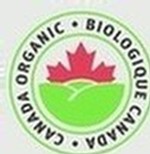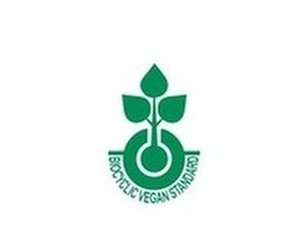Sustainable Wine - how far have we come?

How far have we come? Sustainable wine may sound like a buzzword created by corporate wine executives to sell more wine and give impressions that all wineries must already subscribe to the concept because it's repeated in marketing so much and seems attainable but there remains a large gap between wine producers. You’d think the wine industry would have progressed the most since the beginnings of the environmental movement in the 1960’s, their marketing is so visible, seductive and competitive. But like climate change, microplastics and bee colony collapse there continue to be issues that our society has been slow to understand and act on. Why aren’t we more advanced? The alarm sounding, environmental catalyst classic Silent Spring by Rachel Carson was published in 1961 and the culture at the time was that synthetic insecticides will save the world. Her dystopian outlook for the environment affected by these persistent chemicals such as DDT threatened that culture and she was attacked and muffled by stakeholders and the misinformed. Scenarios repeated time and time again for the last 60 years.
Wine, the beverage of ingredients. If mother nature doesn't provide during the growing season, well there’s an ingredient for that. And the range is great – Mega Purple for colour, potassium sorbate for stability, crushed chestnuts for more tannin, gelatin for less tannin, citric and tartaric acids for more acidity, potassium bicarbonate for less acidity, even ethanol for more alcohol, and water for less alcohol. There are animal inputs like egg whites, gelatin, milk protein, and synthetic inputs like PVPP (plastic) and a broad range of synthetic pesticides. I introduce vineyard inputs here because whatever is added to the vineyard ends up in your glass as residual chemicals. Similar to Silent Spring’s explanation of the relationship of aerial spraying DDT on Elm trees and the residue on leaves killing robins via earthworms. Many pesticides are systemic, they protect the vine from within by being absorbed into tissues, vascular system and berries, and even contact pesticides are absorbed into the plant, like our skin absorbs. Most provincial liquor boards require a pesticide residue analysis before listing a wine because there are limits set. Limits that are recognized to be safe doses, not carcinogenic. But pause here and think about the last 60 years and how we seem to have learned so little. The World Health Organization (WHO) classified Roundup, a too common glyphosate weed killer used in vineyards, as probable carcinogen but changed it to possible carcinogen in the 80's after chemical industry lobby pressures. It is now back to probable carcinogen.
Read Organic diets quickly reduce the amount of glyphosate in people's bodies
Raise your hand if you are interested in sustainability. In protecting our precious environment and your health, and your community’s health. Brock University recently conducted wine research: An Exploration of Consumer Perceptions of Sustainable Wine. Over 700 people surveyed.
“Consumers with high involvement in sustainable wines tend to be younger, better educated, more involved in wine in general, and spend more per bottle than those with low involvement.” Pickering, Best, 2023
“Results show that sustainability-related cues are somewhat valued by consumers when making purchase decisions, but have low importance relative to the other cues examined. Environmental dimensions of sustainability have high saliency, in contrast with social and economic dimensions, and a significant minority of respondents report no or very limited knowledge of sustainable wines.”
There is change happening and it is generational – millennials and Gen Z are leading consumers. In Europe the changes are most apparent. Spain’s Denomination of Origin Penedès in Catalunya (DO Penedès) recently announced an extensive roadmap up to 2030, taking into account sustainability and establishing the region as a high-quality wine producer in Spain. Most immediately, all grapes for DO Penedès wines must be from fully-certified organic vineyards by 2025.
Full article: DO Penedes Organic Wine Plans by Decanter
European government funding for vineyards is based on level of sustainability, with certified organic being king. And as noted, quality is a large motivator for this Spanish region. Climate change resilience is a benefit too with cover crops, diversity and minimal tillage protecting the soil.
The organic approach is only natural inputs into grape growing and winemaking with every step monitored for traceability and transparency by rigorous third party inspections. Biodiversity of cover crops between rows create habitats for predatory insects such as parasitic wasps and dragonflies and protects the surface of the soil so that soil fungi and earthworms can cycle nutrients to roots which helps sequester carbon in a uniquely living regenerative agriculture system. Living soils are the goal of organics and nurturing it with composted grape pomace teeming with fungi extends vine root zone influence by as much as 10 times with symbiotic fungal filament networks. Vegan viticulture excludes animal manures that can lessen living soils and cause pollution of underground water systems. Vegan certified producers extend this concept to winemaking with no animal inputs. A common ingredient is gelatin and this is made from slaughthouse waste. Other ingredients not allowed in organic winemaking include synthetic preservatives, irradiated and genetically modified ingredients.
I’m in! How to find organic wines. Read labels and find organic vegan wines here! In Canada, only organic wines from soil to glass can bear the Canada Organic logo on the label. Wines that are made from organic grapes but not organic winemaking can not have the organic logo because the treatment of the wine after growing is unknown, and the integrity of chain of custody of grapes that went into bottles is equally unknown. Certification to the Biocyclic Vegan Agriculture standard, based in Europe, ensures wines have no animal inputs from soil to glass. This has far reaching benefits to climate change mitigation and animal welfare.


